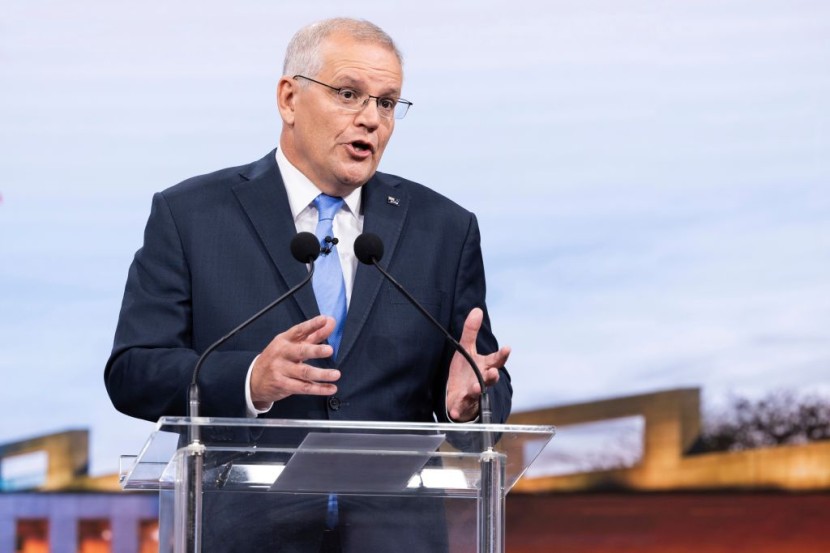
Prime Minister Scott Morrison says Australia is keeping a careful check on a Chinese vessel that was detected far off the coast of Western Australia.
The encounter has been dubbed an "aggressive act" by Defense Minister Peter Dutton, but Morrison claims the ship did not violate freedom of navigation laws. The ship had been monitored by Australian officials for the previous week and was last seen off the coast of Broome at 6 am on Friday.
Chinese Spy Ship Lurks Near Australia
It passed across Australia's exclusive economic zone, passing via Exmouth's naval communication center and approaching the base within 100 kilometers. Morrison called the behavior "unusual" but said that the ship had not entered the Australian seas. The ship, which is equipped with intelligence-gathering capabilities, looked to be following the shoreline, according to Dutton. Murray Watt, a Labor senator, said the issue is a serious concern that the opposition takes "extremely seriously."
Per SBS, Australian officials actively watched the situation, with planes and other surveillance equipment monitoring the vessel. According to the Department of Defense, the ship was a Dongdiao class auxiliary intelligence ship named Haiwangxing (Neptune), which was also observed off the coast of Australia in 2021.
The ship followed the nation's west coast to Exmouth before heading east along the country's northwest coast. Despite the revelation coming only eight days before the federal election, Dutton insisted it had nothing to do with the campaign. Despite the Pacific tensions, China's incoming Ambassador to Australia, Xiao Qian, said that he wants to develop ties with Australia.
Australia will receive eight state-of-the-art nuclear-powered submarines capable of secret, long-range operations as part of the AUKUS contract signed last year. Cyber and artificial intelligence, as well as other subsea capabilities, would be shared by the three countries.
Zhao Lijian, a spokesperson for China's Foreign Ministry at the time, described the agreement as a "very reckless action" that undermined regional peace and security and increased the arms race.
France Also Enraged With US-Australia Agreement
Along with China, the agreement enraged France, which realized at the last minute that its own $65 billion diesel-electric submarine contract with Australia had been canceled, according to Newsweek via MSN.
Australian officials were not told of the ship's course and that a Chinese warship traveling thus far south was "unprecedented." The revelation is the latest indicator of escalating tensions between Canberra and Beijing, which have been involved in a diplomatic and trade war.
The deployment of a laser by a PLA ship against an Australian surveillance plane in the Arafura Sea off Australia's northern coast in March, as well as a security deal inked between China and the Solomon Islands last month, have both heightened tensions.
Beijing has been enraged by Australia's decision to join the Aukus defense contract with the US and UK to fight an increasingly aggressive China. Dutton made the claims barely two weeks before an election that would be fought in part on national security grounds, The Finacial Times reported.
The administration claims that the opposition Labor Party, which is polling well, cannot be trusted to protect the country from China. However, he disputed the government's choice to publicize the Haiwangxing's maneuvers as part of its election campaign.
In recent days, Xiao Qian, China's ambassador to Australia since January, has attempted to ease relations. "A robust and stable partnership is in our two nations' and people's best interests. In the Australian Financial Review this week, he wrote that "mutual benefit is the necessity, and the only avenue, for the growth of China-Australia ties."
Related Article: China "Working Hard" to Strengthen Military for Taiwan Takeover, Says Top US Intelligence Exec
© 2025 HNGN, All rights reserved. Do not reproduce without permission.








